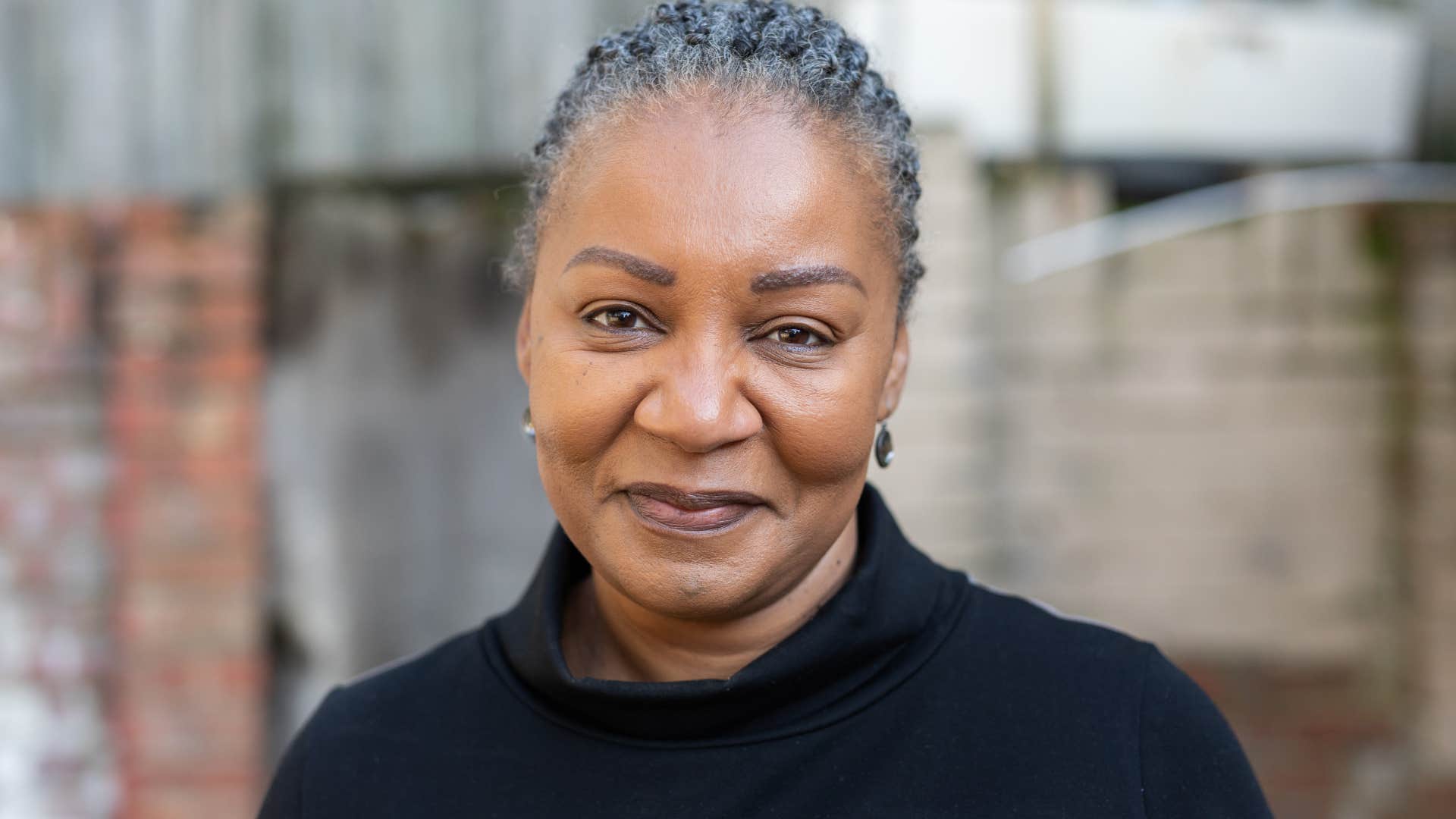People Who Grew Up Before Smartphones Usually Have These 11 Quiet Superpowers
The negative consequences of screen time and social media are impossible to ignore.
 insta_photos | Shutterstock
insta_photos | Shutterstock The consequences of too much screen time, alongside phone and social media usage, on young children have been made incredibly clear by researchers over the years, especially as kids who grew up entirely in a digital world, like Gen Alpha, become teenagers and adults. Over 50% of teens say they spend too much time on their phones, Gen Zers are tired of social media, and young adults are grappling with the mental and emotional side effects of being dependent on their phones.
So, how are older generations at an advantage, considering they grew up outside of the digital landscape and without smartphones attached to their hips? Well, people who grew up before smartphones usually have these quiet superpowers — not just in their personal lives, but also in their relationships, professional careers, and communities.
Here are 11 quiet superpowers people who grew up before smartphones usually have
1. A great memory
 fizkes | Shutterstock
fizkes | Shutterstock
Having a great memory and being able to remember things like a person's phone number, addresses, and even what they did on a random Tuesday is one of the quiet superpowers of people who grew up before smartphones.
According to a study from the Journal of Pediatric Health Care, growing up with smartphones and engaging in excessive screen time and "media multitasking" — like watching TV while doomscrolling on their phones — tends to negatively affect cognitive abilities in young adults, affecting not just their memory, but other notable functions like concentration and focus.
2. Reading social cues
 shurkin_son | Shutterstock
shurkin_son | Shutterstock
From sensing a shift in energy in concentration to being able to read body language in conversations, many adults who grew up without constant screen time or smartphones tend to be better at reading social cues. They grew up "fending for themselves," making friends in-person, going to face-to-face interviews, and networking in social spaces, rather than behind a screen on their phones.
The practice of building social skills, in-person relationships, and combating social anxiety is much easier when technological distractions and short-cuts aren't present. Older generations were forced to go out into the world and practice their social skills.
From toddlers, to adolescents, and even young adults, like a study from the University of Alberta suggests, too much screen time can spark social anxiety and lacking social skills as kids overload their brains with content online and avoid in-person conversations and interactions.
3. Deep focus
 insta_photos | Shutterstock
insta_photos | Shutterstock
People who grew up before smartphones usually have the quiet superpower of productivity and deep focus. Considering social media distractions, too much screen time, and even the allure of notifications on our phones tend to sabotage our ability to concentrate and focus, this "superpower" for older generations isn't all that surprising.
According to a study published in Developmental Neuropsychology, struggles with concentration later in life can be tied back to digital overconsumption and excessive screen time in children. When kids are distracted with iPads and overstimulated by their phones from a young age, they're more likely to struggle with true deep focus as a result.
4. Patience
 Chay_Tee | Shutterstock
Chay_Tee | Shutterstock
Patience isn't just a virtue, but a practice that sometimes takes years to truly learn and excel at. For kids that grew up with smartphones and constant distractions online, patience can also be a struggle.
Alongside a sleuth of other physical and mental health struggles, too much screen time in adolescents and children growing up can reduce their attention span and make focus, patience, and emotional regulation that much more difficult.
Boredom — the experience that baby boomers practiced sitting with, while younger generations actively avoid online — is largely what gifted them with the superpower of patience. They were forced to sit with their emotions, find things to fill their time, and seek out remedies to their boredom with patience, rather than immediately resorting to gratification from social media or distractions online.
5. Appreciating silence
 Andrii Nekrasov | Shutterstock
Andrii Nekrasov | Shutterstock
Baby boomers and other generations who grew up before smartphones usually have the superpower of appreciating silence, solitude, and their alone time. They're not grappling with the anxiety of quietness or trying to distract themselves from boredom with their phones. They engage in healthy habits offline, connect with people, and even self-reflect comfortably without feeling the need to avoid or compensate for complex emotions and feelings.
Ironically enough, the same children who overuse their phones and engage in too much screen time early in life also report higher rates of loneliness in adulthood, largely because they don't have the superpower of leveraging their solitude to work in their best interest. They're so used to turning on their phone, distracting themselves from self-reflection, or avoiding emotional regulation that it's isolated them completely — from themselves and from others.
6. Entertaining themselves
 Dragana Gordic | Shutterstock
Dragana Gordic | Shutterstock
When they're alone, sitting at home without plans, or bored, older generations who grew up without smartphones usually have the superpower of entertaining themselves without relying on their phones for comfort or distraction.
Whether it's making art, going on walks outside, reading a book, or playing a board game, it's much easier for older generations, with the focus and patience to engage in a hobby with long-term benefits, rather than instant gratification, to entertain themselves.
7. Great handwriting
 fizkes | Shutterstock
fizkes | Shutterstock
If you've ever struggled with handwriting or neatness when writing on paper, you know that great handwriting is truly a superpower, one that older generations who were forced to physically write growing up and in school tend to master before adulthood. They didn't have smartphones, laptops, or technology to avoid handwriting, and were forced to make it a regular practice.
While cursive, short-hand, and even physical handwriting isn't all that important in corporate or personal environments today, it's still a superpower that older generations leverage in many aspects of their lives, even if it's just journaling at the end of the day to clear their heads and de-stress.
8. Independent thinking
 Jose Calsina | Shutterstock
Jose Calsina | Shutterstock
Whether it's crafting their own authentic identity or forming an opinion on worldly topics, many older generations have the superpower of independent thinking over "groupthink" or influences from people online.
Pressures from social media, internet accessibility, and constant discourse may seem harmless, and to some, even exciting and intellectually stimulating. But for generations that grew up completely surrounded by it, like Gen Z, it's exhausting and isolating.
Not only does it exacerbate the loneliness epidemic they're already experiencing, it makes it harder to form original thoughts, seek out personal interests, or build an identity not entirely influenced by trends, social media, and what everyone else in the world is doing.
Baby boomers and other generations who grew up without smartphones were able to experiment, try new things, and seek out interests that were valuable to them, rather than feeling a constant pressure to "fit in" online or only try trends and things that other people were boasting about online.
9. Delayed gratification
 Monkey Business Images | Shutterstock
Monkey Business Images | Shutterstock
From cracking open a new book, to saving for larger investments, and even prioritizing daily habits like going for a walk that boost physical and mental health in the long-term, many generations who grew up without smartphones have the superpower of leveraging delayed gratification.
While other generations fell into the trap of instant gratification, looking to social media for an instant relief from boredom or feigning for notifications, external validation, and praise, baby boomers and others with a screen-free childhood recognize the power of playing the long game.
They were never pushed or influenced by the instant gratification of social media or the internet, so they learned the beauty of the journey, the relief and pride of pursuing a long-term goal, and the necessity of building habits that protect well-being over a long period of time, rather than just for the comfort and convenience of the present moment.
10. Storytelling
 HIV in View | Shutterstock
HIV in View | Shutterstock
People who grew up before smartphones usually have the superpower of storytelling, whether it's in their communities, between friends, or even with their own adult children at home.
Of course, according to a study from Theory Research Practice Policy, storytelling isn't just a personal habit and hobby that boosts well-being, it also has profoundly positive effects on family dynamics and development. It's a healing practice that can mend generational tensions, bond people together, and even cultivate communities, which is why it's so important to practice and engage in.
While Gen Zers and other young people are still able to tell stories and speak their mind online, the power of face-to-face interactions and conversations is impossible to ignore.
11. Resourcefulness
 Ground Picture | Shutterstock
Ground Picture | Shutterstock
For older generations that didn't have their phones at their fingertips or the accessibility of the internet to lean on from a young age, resourcefulness was a requirement for success. In other words, people who grew up before smartphones usually have the superpower of making the most of what they have — solving problems, crafting a routine, and overcoming challenges by leveraging their intellect and access.
Of course, many younger generations, according to a study from Michigan Medicine, recognize how unhealthy and toxic social media can be — harming the ability to practice resourcefulness or cultivate a well-balanced mental health — yet they still fall into the trap of screen time and distraction.
The self-discipline that it truly takes to overcome the allure of social media and smartphones is something younger generations have to craft for themselves. Older generations like baby boomers who grew up without smartphones may have learned resourcefulness, but they never had to overcome struggles of social media distractions. It may be hard but, in the end, it's clearly worth it.
Zayda Slabbekoorn is a staff writer with a bachelor's degree in social relations & policy and gender studies who focuses on psychology, relationships, self-help, and human interest stories.

